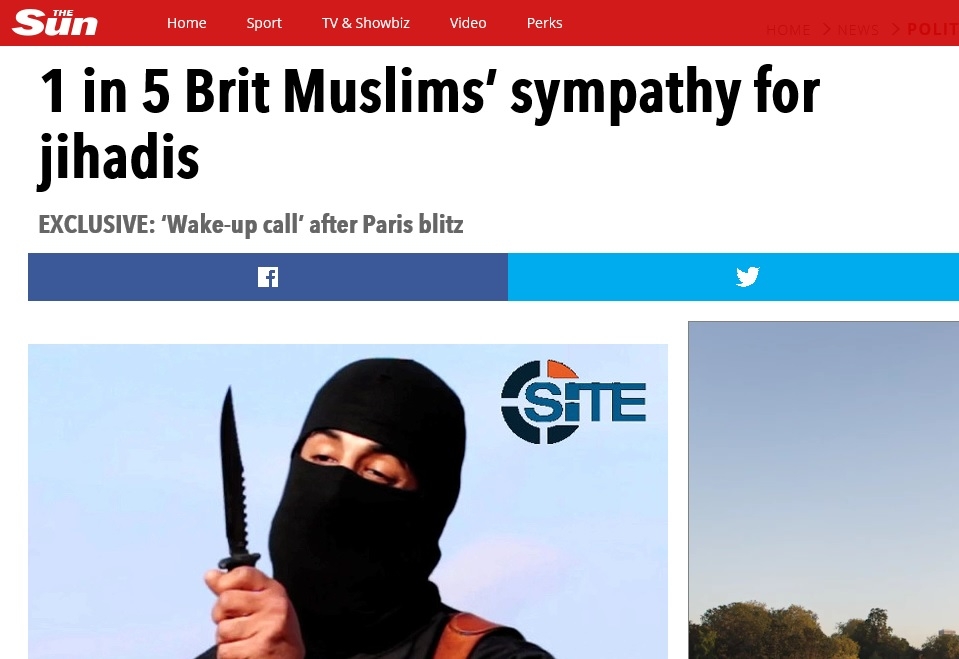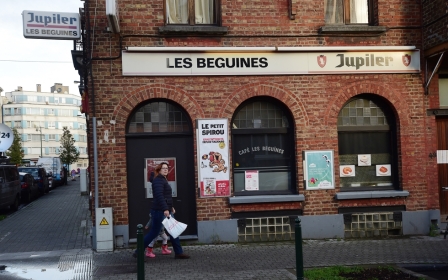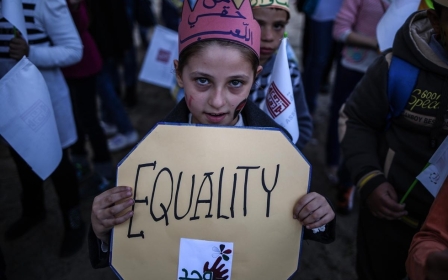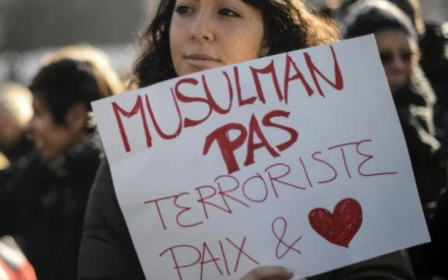Murdoch-owned tabloid's murky coverage of Muslims

This week, the Rupert Murdoch-owned UK tabloid, The Sun, graced Monday morning with an effort at group libel. Its front page headline declared that "1 in 5 Brit Muslims' sympathy with jihadis". The Sun is Britain's highest-circulation paper, with nearly two million daily readers.
Unsurprisingly, this headline is false. The poll it is based on made no reference to “jihadis,” nor the Islamic State (IS) group. Respondents were actually asked if they had any sympathy for those “who leave the UK to join fighters in Syria”.
This is a very different question, as IS are not the only “fighters” in Syria. In fact, British security and intelligence agencies actively provide weapons and non-lethal help to many other groups fighting in Syria. There are also high-profile examples of Britons going to Syria to fight against IS.
Furthermore, the word “sympathy” is used, which has a broad meaning. Survation, the company that conducted this poll, has explicitly said that “sympathy” should not be conflated with “support”. For example, sympathy can equally mean feelings of pity, or understanding.
Most importantly, The Sun failed to mention that results to a similar poll published by Sky News in March showed comparable levels of sympathy from British non-Muslims. In essence, that "attitudes held by the Muslim and non-Muslim populations are not that different." It is disingenuous to castigate one result whilst ignoring the other.
Reaction
A spokesperson from YouGov criticised the headline and the poll it is based on, saying that "To survey Britain’s Muslim population [accurately], particularly at a time of such heightened sensitivities, requires the kind of time, care and therefore cost that is beyond a newspaper’s budget.” YouGov is The Sun’s regular pollster, and “didn’t want to do the poll” before Survation was approached.
Survation has distanced itself from the way in which its poll results have been used. An official statement pointed out that "Survation do not support or endorse the way in which this poll’s findings have been interpreted.”
Moreover, The Sun’s tasteless front page has prompted a record number of complaints to the Independent Press Standards Organisation (IPSO). Within 48 hours, IPSO was flooded with over 1,200 complaints – more than any other published story has produced since the regulator was set up in September 2014.
Implications
This entire episode is particularly ironic given The Sun’s strong criticism of multiculturalism based on the assertion that it damages social cohesion. If The Sun truly cared about encouraging integration, the results of this poll could have easily been used to demonstrate a consensus between Muslims and non-Muslims in Britain, by saying that both regard fighters leaving for Syria with overwhelmingly the same sentiment (“no sympathy”).
The next day, in an editorial titled “Face the facts,” The Sun tried to justify its dishonest headline by citing one result from a BBC poll published in February. The referenced result suggested that “one in four British Muslims say they have some sympathy for the motives behind the attacks on Charlie Hebdo” - “sympathy,” again, being the operative word.
Yet The Sun failed to mention that this same poll showed 95% of British Muslims “feel a loyalty to the country,” and 93% believe “Muslims in Britain should always obey British laws”. These are positive results and have the capacity to reinforce social solidarity at sensitive times.
Instead, positive results are largely ignored, and there is a consistently selective use of polling data for deliberately inflammatory purposes. This raises three main concerns.
First, it presents an inaccurate depiction of how British Muslims actually perceive themselves – in reality, they are no different to any other British citizen.
Secondly, in this context, it dehumanises and reduces a minority group to violent stereotypes. This inevitably builds resentment, leading to increased alienation, which creates a barrier to meaningful integration.
The dehumanisation of a group also serves as a subconscious justification for discrimination. We have already seen a 300% spike in hate crimes against Muslims in the UK last week. Most of the victims are women and children.
Lastly, these misconstrued headlines feed into the narrative extremist groups want Muslims in the West to believe.
When The Sun announces, albeit erroneously, that a fifth of Muslims are potentially undercover IS recruits – what message does that send out?
On the other hand, if poll results like “95% of British Muslims are loyal to Britain” were as widely propagated, IS would face a more severe blow than one week of bombing Raqqa. Their “us against them” recruitment strategy would suffer immensely. As a former IS hostage put it, “Cohesion, tolerance – it is not what they want to see … What they fear is unity.”
These front pages and misused polls give a false impression of British Muslims as living on the edge of society. In fact, they are our students, teachers, doctors, lawyers, entrepreneurs, shop owners, elderly, and children as much as the next person.
British Muslims have time and time again – despite the fact that they are under no obligation to – proven exactly how British they are.
Even their response to the Sun’s “1 in 5” headline met with an outpouring of self-deprecation on social media, whereby the trending hashtag #1in5Muslims was humorously used to recite common stereotypes.
They are as British as every other Briton. It is high time those like The Sun stopped telling them that they aren’t. Defeating extremists is not done by echoing their words.
-Rabah Kherbane is a writer and advocate, with an interest in human rights and international law.
The views expressed in this article belong to the author and do not necessarily reflect the editorial policy of Middle East Eye.
Photo: An image grab showing an article headline from the website of the British daily the Sun.
Middle East Eye propose une couverture et une analyse indépendantes et incomparables du Moyen-Orient, de l’Afrique du Nord et d’autres régions du monde. Pour en savoir plus sur la reprise de ce contenu et les frais qui s’appliquent, veuillez remplir ce formulaire [en anglais]. Pour en savoir plus sur MEE, cliquez ici [en anglais].





